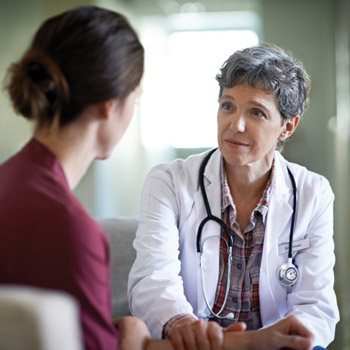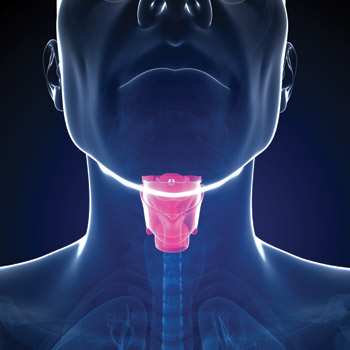Trio of plenary speakers offers hope, humanity, healing
Plenary speakers Anthony S. Fauci, MD, Kimberly Manning, MD, FACP, and Rana Awdish, MD, FACP, reflected on the COVID-19 pandemic and systemic racism in the United States and offered ways to move forward.
Internal Medicine Meeting 2021: Virtual Experience showcased not one but three plenary speakers. Each day, registered meeting attendees heard from leaders in internal medicine who focused on universal themes.
The Opening Ceremony on Thursday, April 29, featured Anthony S. Fauci, MD, director of the National Institute of Allergy and Infectious Diseases and chief medical advisor to President Joe Biden. Dr. Fauci participated in a fireside chat and Q&A with ACP's EVP/CEO, Darilyn V. Moyer, MD, FACP, and Treasurer, Gregory C. Kane, MD, MACP, titled “COVID-19 in 2021: Lessons Learned and Remaining Challenges.”

Dr. Fauci answered questions about the country's response to the pandemic, detailing what he thought the U.S. could have done better and what it got right. In the former category, he noted that steady attrition of local public health infrastructure over time before the pandemic led to initial difficulties in identification, isolation, and contact tracing. Mobilizing the private sector to produce diagnostics was also a hurdle, he said.
On the plus side, he said, “We got the science right.” Due to ongoing research that had begun decades earlier, vaccines were in development just a few days after the novel coronavirus was sequenced, with phase III trials under way by July 2020. “Because there was so much infection in the community, we were able to get an efficacy signal very quickly,” he said. “And so by the time we got to December of 2020, vaccine was going into people's arms, a highly efficacious vaccine.”
Dr. Fauci also offered praise to the physicians and other clinicians who have battled in the trenches against COVID-19. “In the midst of a lot of suffering, a lot of death … the bright light in all of this is how the medical profession has responded, and that's the reason why they are rightfully referred to as the heroes and the heroines of this,” Dr. Fauci said. “I think it'll just maybe, and I hope, add a lot of pride in the purpose of what we all do, and I think history will absolutely document that.”
At the end of the Opening Ceremony, Dr. Moyer presented Dr. Fauci with ACP's Joseph F. Boyle Award for Distinguished Public Service. “Despite repeated attempts to discredit his recommendations to defeat the virus, Dr. Fauci continued to provide guidance based on the best available evidence, always speaking truth, based on what he and other scientists understood about the disease,” Dr. Moyer said. “Dr. Fauci was and continues to be the nation's most trusted voice on COVID-19. In large part because of his leadership, the U.S. is beginning to turn the corner on this terrible pandemic.”

On Friday, April 30, Kimberly Manning, MD, FACP, a professor of medicine and the associate vice chair for diversity, equity, and inclusion in the department of medicine at Emory University School of Medicine in Atlanta, joined Sue S. Bornstein, MD, FACP, who is Chair-elect of ACP's Board of Regents, to share stories and insights to inspire internists' focus on diversity, equity, and inclusion in medicine.
In Dr. Manning's address, “Broadening Your Life Lens: A Case for Diversity,” she discussed systemic racism in the United States and used real-life examples to show the importance of diversity and inclusiveness in health care. Each person's life lens can lead to implicit biases, defining what is normal and what is “other,” Dr. Manning explained.
“For us internists, that moves into the clinical space. That shows up in our learning environments and in our clinical environments and in the decisions that we make on behalf of our patients: how we advocate for them, how we counsel them, what we say, what we do, the decisions we make,” she said. “And so it's important for us to think about ways to broaden the way we think, to humanize one another.”
Dr. Manning stressed that diversity in medicine is more than creating committees and giving talks. “To dismantle structural racism, we have to understand what racism is, and that is a system that assigns value to one group over another and, also, that assigns opportunities to one group over another as a result,” she said. “And so our stories, our life lenses, the humanity of each individual and value of each patient, each colleague, each interprofessional team member, is what will help get us there. And it is the thing that will ignite us to move towards rebuilding those structures and opportunities.”

To close out the meeting, Rana Awdish, MD, FACP, director of the pulmonary hypertension program at Henry Ford Health System in Detroit, joined George M. Abraham, MD, MPH, FACP, ACP's President, and Thomas G. Cooney, MD, MACP, Chair of the Board of Regents, for the plenary address on Saturday, May 1. Dr. Awdish, who survived a critical illness herself, discussed how physicians can use their pain and trauma to fuel self-examination and rebirth.
“Whether you dealt with COVID directly, or you had a shuttered practice for a time, or you were homeschooling as a parent, this has been an intensely challenging time. We have been wounded. And as I've learned, our injuries offer us a window, provided we're willing to look,” Dr. Awdish said.
In her talk, Dr. Awdish used art, from Frida Kahlo's “The Lost Desire” to Andrew Wyeth's “Christina's World” to Ai Weiwei's “Straight,” to encourage her audience to see differently. “We have to stop walking past the things that we don't want to see. We have to dismantle the structures that we now know are unsafe for our patients and for each other,” Dr. Awdish said. “We have to deliver the kind of care we all believe in, our collective vision of who we are, because our role in the lives of our patients is so much larger than we can imagine.”
Dr. Awdish ended her talk with a wish for her listeners recovering from the wound of COVID-19. “May we metabolize our pain and use it to soften our hearts. May we transform our communities and invest in our vision of what is possible,” she said. “May we surprise ourselves with the sense of purpose and intention we can bring to our work, and with our commitment to carry forward the wisdom of this wound.”





